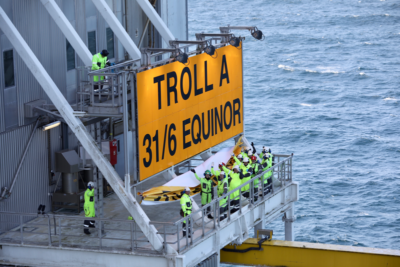Massive cost-cutting in recent years and rising oil prices can lead to “extreme profitability” for Equinor, Norway’s state-controlled oil and energy firm that recently changed its name from Statoil. One Oslo analyst thinks the company can earn more money during the next two years than it has in the last 17 together.

“Equinor has spent several years gearing itself to be able to profit on an oil price of USD 50 a barrel,” Tom Erik Kristiansen, an analyst at Oslo-based Pareto, told newspaper Klassekampen. With prices now well over USD 70, and recently approaching USD 80 a barrel, “they’re positioned very well over the next few years,” Kristiansen said.
Former CEO Helge Lund started cutting costs even before oil prices collapsed in 2014. His “efficiency program” was carried on by his successor as CEO, Statoil veteran Eldar Sætre, who now leads a company that’s much “leaner and meaner” – to the point that offshore supply companies have complained that Equinor puts them under huge pressure during bidding processes for major jobs. The cost-cutting also has fueled concerns over safety and maintenance. The company vowed to improve, and claims safety is always its primary concern.

Equinor’s renewed profitability, meanwhile, was already evident in its second-quarter results released late last week (external link to Equinor’s new website) and analysts Kristiansen predicts more to come. “These next two years will be completely unique in Equinor’s history if oil prices stay up at today’s level,” Kristiansen said, predicting “extreme profitability” that will generate new capital and more good fortunes for Norway since the state owns 67 percent of Equinor’s shares.
The profits also come amidst increased oil exploration activity on the Norwegian Continental Shelf. Norway’s state oil directorate expects 40 to 50 new exploration wells to be drilled this year, compared to 36 last year. Around 55 percent of Norway’s oil and gas reserves have yet to be tapped, according the directorate’s estimates.
“It’s positive that we see an increase in oil exploration activity,” stated exploration director Torgeir Stordal. Not everyone agrees, with environmentalists and climate activists condemning more oil exploration and production because of the carbon emissions it creates and the risks it poses especially in sensitive Arctic areas.
Equinor and government officials retort that natural gas is more climate- and environmentally friendly than coal and that Equinor is also actively involved in renewable energy, especially offshore wind projects.
newsinenglish.no/Nina Berglund

